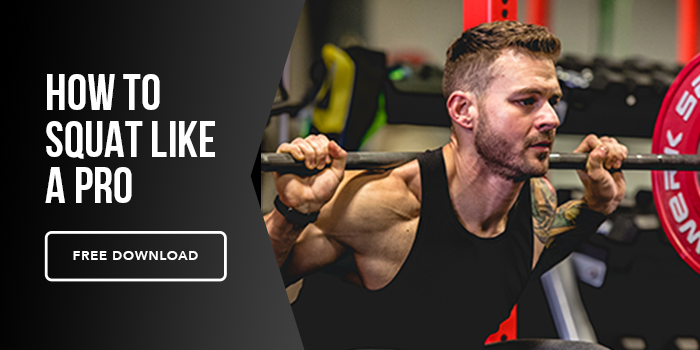This is a tough question to answer because it's so dependent on the individual and their skill level. A beginner can put on 5-10lbs every week on the bar for weeks on end. An advanced lifter may only put on 5lbs a month at BEST. Just like any sport, the closer you get to your genetic potential, the smaller the potential for growth occurs.
Neuromuscular Gains
When starting out, you are able to crank out 5-10lbs each week because you are grooving down new muscular patterns. Your central nervous system is being introduced to a movement it’s never done before and thus the potential to improve is enormous. This is why focusing on big compound movements is best. Your recovery will be quick, but your focus will need to be on perfect technique. Individuals can make increases on the bar simply by just firing a more efficient nervous system and connection to the movement.
Be sure to check out my article on How to Increase Your Strength on the Main Lifts for more help on this.
Technique and Injury
Strength gains can also be determined by how often you get injured. I’ve had a lot of clients and friends never get anywhere in their lifting journey because they did too much too soon. There is no sense trying to add more when less will get the job done. You are looking for the minimum effective dose to show weekly progress. This is why technique is the priority. The lifter who spends a year focusing on perfect technique and slower weight increases may not push as much weight as the guy who forces himself to add weight to the bar every week, but on a long enough timeline, that first lifter will FAR surpass the latter.
This is because our body can only recover so quickly. If you are overexerting your effort in the gym, and inevitably get injured, you’ve now set yourself back a couple months. Now your focus becomes rehabbing the injury, and in some cases starting over. Slow, steady progress wins every time otherwise you’ll spend each year yo-yo’ing your strength.
Progression
Follow a program in a way that allows for progression week to week. The biggest mistake lifters don’t even realize they make is not continually trying to progress over the course of a year. Life gets in the way without them realizing. Maybe they got injured, or went on vacation. Something gets in the way that has a lifter stay at a given weight or barely move the weight up. Then after a year they can’t figure out why they haven’t gotten bigger when the reality is they only added 5-10lbs on any given lift.
The easy way to fix this is to start tracking down each workout. It can be on a spreadsheet, on your notes, a weightlifting app, whatever you feel most comfortable with. It doesn’t need to be fancy. You just need to be able to see week to week, are you making progression in some form:
- 5lbs more than week before
- More reps than the week before
- More sets than the week before
Muscle is built through adaptation against stress. If you want your muscle to be BIGGER than the week before, then you need to be DOING more than the week before. The weight or volume NEEDS to go up. Start tracking. It doesn’t always have to be the weight going up. Even adding a rep means progress. Don’t worry about how small the change is week to week. The bigger picture is being able to see over a year how much you’ve gotten stronger.
Recovery
Again, we want the minimum effective dose. Less is more. As a beginner you only need 8-10 weekly sets per muscle. An intermediate will want 12-15, and an advanced may need 15+ sets. Doing more than necessary doesn’t always equate to better results. They’ve done studies where individuals added 20% more volume to their normal workout and gained LESS muscle than they normally would. On the flip side, they’ve had individuals REDUCE their weekly volume and see BETTER results than what they originally had. Ultimately this comes down to experimentation, and seeing what level of volume your body responds best to so your best bet is to start low and build up as needed.
Check out my article on Is a Full-Body Resistance Training Routine Better Than a Split.
Intensity and Deload
Always stay 2-3 reps shy of failure. Studies have shown individuals can make just as much, if not more progress staying close to failure vs those who went all the way. Gaining strength is all about stimulating the muscle, and then being able to recover enough in time to hit the muscle again and still progress.
After you’ve built up 4-6 weeks of doing more reps or weight than the week before you’ll notice your progress starts to plateau. This is when a deload is needed. One week where you cut intensity and volume in half. You are using this week to give your body time to catch up and recover to the accumulated volume you’ve placed while still providing some stimulus to keep the muscles active. Once you’ve taken a deload, start the program over, and aim to beat your previous 4-6 week cycle progress.
Check out my article on The Best Way to Build Strength in the Gym Fast.






